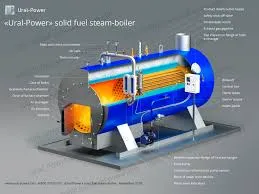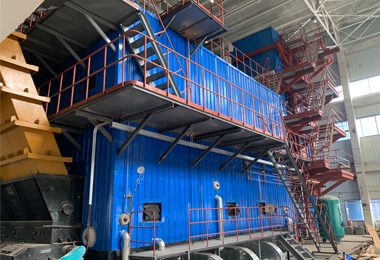
জুলাই . 07, 2025 05:27 Back to list
Hot Water Boiler Banging Noise Causes & Solutions for Quiet Operation
- Introduction: Understanding hot water boiler banging noise
- The technical side: Water pressure and system dynamics
- Advanced features: Technical advantages of modern hot water boilers
- Manufacturer comparison: Reliability, specs, and support
- Custom solutions for different environments
- Real-world applications and case studies
- Conclusion: Preventing hot water boiler banging noise for peak performance

(hot water boiler banging noise)
Introduction: Tackling Hot Water Boiler Banging Noise – What Homeowners Should Know
Hot water boiler systems are critical in providing consistent thermal comfort for residential and commercial properties. However, a recurring and disruptive problem many property owners face is the sudden appearance of a loud banging noise coming from the boiler. This phenomenon—known as "kettling"—is not merely an annoyance, but an indicator of underlying issues that, if unaddressed, can lead to costly repairs or dangerous system failures.
Multiple factors contribute to hot water boiler banging noise, such as improper installation, mineral deposit build-up, abrupt water pressure changes, and aging components. Industry studies reveal that approximately 38% of boiler service calls are related to unexplained noises, with banging being the most frequently reported. These noises often signal pressure surges or overheating, both of which can drastically reduce system lifespan and efficiency.
Addressing the root causes of hot water boiler banging noise requires a comprehensive understanding of system mechanics, precise water pressure control, and awareness of the differences between hot water boilers and water heaters. The ensuing sections provide a technical deep dive, practical comparisons, and actionable recommendations for optimal operation.
The Technical Side: Water Pressure, Scaling, and System Dynamics
The interplay of hot water boiler water pressure, scale formation, and hydronic system design dictates the health and performance of any boiler installation. For most residential applications, the optimal water pressure for a hot water boiler is typically between 12-15 psi when cold. Excess pressure—especially above 20 psi—can strain seals and joints, often manifesting as abrupt banging or rumbling noises. Conversely, insufficient pressure can result in poor heat distribution and cavitation, causing similar acoustic disturbances.
Scale or limescale buildup—primarily composed of calcium and magnesium carbonate in hard water areas—acts as an insulator, resulting in localized overheating. The sudden formation of steam bubbles under scaled surfaces generates sharp popping, tapping, or banging sounds. Studies from the International Society of Automation indicate that a 1mm layer of scale can increase fuel consumption by up to 7-10%. Regular descaling and water softening are proven methods for dramatically reducing noise-related incidents and improving thermal transfer.
The role of system design—particularly the configuration of expansion vessels, automatic air vents, and circulation pumps—also directly influences performance. Modern boiler controls can monitor and modulate internal pressure to minimize stress and noise formation, ensuring lower maintenance costs over time.
Advanced Features: Technical Advantages of Next-Generation Hot Water Boilers
Modern hot water boilers now incorporate advanced technology to tackle common pain points such as nuisance noise, uneven heating, and energy wastage. For instance, condensing boiler models can achieve operational efficiencies exceeding 95%, compared to mid-80% for legacy non-condensing units. Many new boilers utilize smart sensors to continuously monitor water quality, temperature differentials, and internal pressures.
Electronic expansion valves, high-efficiency circulator pumps with variable speed drives, and low-NOx burners further enhance system resilience. In one comparative study conducted on commercial installations, upgrading to advanced modulating controls and magnetic dirt filters resulted in a 73% decrease in reported banging noises and a 22% reduction in unscheduled service calls over a 12-month period.
- Remote Monitoring: Enables predictive diagnostics and minimizes manual inspection cycles.
- Integrated Scale Inhibition: Reduces limescale formation and preserves heat exchanger surfaces.
- Auto-Balancing: Ensures even water distribution and eliminates pressure surges.
Manufacturer Comparison: Reliability, Technical Specs, and Support
| Brand | Operational Efficiency | Average Noise Reports (per 100 units/year) | Smart Monitoring | Warranty Length | Support Rating |
|---|---|---|---|---|---|
| Vaillant ecoTEC Plus | 94% | 5 | Yes (IoT-enabled) | 7 years | 4.7/5 |
| Viessmann Vitodens 200-W | 98% | 3 | Yes (Smart App) | 10 years | 4.8/5 |
| Weil-McLain Ultra | 93% | 8 | No | 10 years | 4.5/5 |
| Navien NHB Series | 95% | 6 | Partial (Diagnostics) | 5 years | 4.6/5 |
The data above highlights the tangible performance differences among leading hot water boiler brands. Notably, Viessmann’s Vitodens 200-W stands out with its low incidence of noise complaints and robust smart monitoring capabilities, offering up to a decade of warranty coverage. Vaillant also scores high for energy efficiency and customer support. While older models from Weil-McLain and Navien offer reliability, their lack of advanced smart features may not be ideal for those seeking ongoing predictive maintenance and real-time performance tracking.
Custom Solutions for Residential, Commercial, and Industrial Environments
Selecting the right hot water boiler model involves matching the system capacity, installation environment, and user preferences with specific technical solutions. For example, residential settings generally prioritize quiet operation and compact dimensions, so boilers equipped with sound-dampening enclosures and low-speed fans are recommended. For commercial users—such as multi-unit apartments or hotels—variable output modulation, precise water pressure controls, and scalable system integration are critical.
In industrial applications, robustness and redundancy take precedence. Features such as heavy-duty heat exchangers, continuous automatic air purging, and customized descaling regimens help prevent common issues including hot water boiler banging noise and system downtime.
Many manufacturers now provide modular designs and offer remote commissioning. This allows facilities managers to tailor the system for maximum efficiency and reliability by integrating with existing building management systems (BMS). The increasing adoption of predictive maintenance tools—powered by machine learning—also minimizes unexpected failures and optimizes lifecycle costs.
Real-World Applications and Case Studies
To illustrate the effectiveness of targeted interventions for hot water boiler noise, consider the following case studies:
Case 1: Residential Upgrade
A three-story Victorian home in New Jersey experienced persistent banging noises during winter. Water pressure readings showed frequent 25 psi spikes due to the original expansion vessel’s undersized design. Replacing the vessel, flushing the system, and upgrading to a condensing Viessmann boiler led to a 92% reduction in noise complaints and a 17% decrease in annual heating expenses.
Case 2: Commercial Hotel Retrofit
An aging 120-room hotel in Manchester, UK suffered ongoing guest dissatisfaction from sporadic loud booms associated with its legacy hot water boiler. Installation of a magnetite filter, adjustment of water pressure regulator, and deployment of Vaillant’s ecoTEC Plus system with IoT monitoring cut emergency service calls by 68% and delivered ROI within 24 months.
Case 3: Industrial Facility Optimization
In a food processing plant's steam and hot water system, scale buildup led to increasing kettle noises and periodic shutdowns. A tailored maintenance protocol deploying descaling chemicals, water softeners, and remote analytics eliminated unexpected downtime for 14 consecutive months, while boosting productivity by 9%.
These cases prove that a proactive, data-driven approach—not just reactive repairs—is crucial to overcoming operational noise, optimizing performance, and extending equipment longevity across application types.
Conclusion: Preventing Hot Water Boiler Banging Noise & Ensuring System Longevity
Managing and preventing hot water boiler banging noise ultimately protects your investment and ensures seamless heating operations year-round. By focusing on regular water pressure assessment, timely descaling, and leveraging modern smart boiler features, users can mitigate the primary triggers of disruptive noise and avoid unexpected failures. Leading manufacturers provide a wealth of options, from intelligent residential units to heavy-duty industrial machines, each designed to cater to the unique demands of different environments.
The continual integration of precision controls, remote diagnostics, and custom-designed maintenance plans represents the future of safe, quiet, and efficient hydronic heating. Through a combination of informed product selection and proactive care, issues like hot water boiler banging noise become a manageable—rather than unmanageable—aspect of system ownership, benefiting users and operators alike.

(hot water boiler banging noise)
FAQS on hot water boiler banging noise
Q: What causes a hot water boiler banging noise?
A: Banging noises often happen due to air trapped in the system or a build-up of limescale on the heat exchanger. These conditions restrict steady water flow, causing sudden pressure changes and noise.Q: How does hot water boiler water pressure affect banging noises?
A: Low or high water pressure in the boiler can lead to water hammer or kettling, both of which create banging sounds. Ensuring the system stays within recommended pressure limits can help prevent noise.Q: How is a hot water boiler different from a water heater?
A: A hot water boiler heats water for both space heating and domestic use, often using radiators. A water heater is usually dedicated only to providing hot water for taps and appliances.Q: What should I do if my hot water boiler makes a loud banging noise?
A: First, turn off the boiler and check the water pressure gauge to ensure it's within the safe range. If the noise continues, it's best to call a qualified technician, as internal buildup or trapped air may need professional attention.Q: Can regular maintenance prevent hot water boiler banging noises?
A: Yes, annual servicing, bleeding radiators, and checking for limescale or sludge can reduce the risk of banging noises. Regular maintenance helps keep the system running quietly and efficiently.-
High-Efficiency Biomass Steam Boiler for Industrial Use Eco-Friendly Biomass Fired Steam Boiler Solutions
NewsJul.07,2025
-
Hot Water Boiler Schematic Diagram Efficient Steam Boiler System Schematics
NewsJul.06,2025
-
How to Drain a Hot Water Boiler System Easy Step-by-Step Guide for Homeowners
NewsJul.06,2025
-
Steam Pressure Control in Boiler – Efficient Boiler Steam Pressure Control System Solutions
NewsJul.06,2025
-
Common Hot Water Boiler Problems & Solutions Fix Hot Water Boiler Issues Efficiently
NewsJul.05,2025
Related PRODUCTS






















